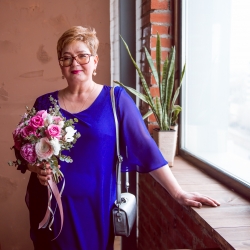Просмотр содержимого документа
«Презентация к уроку английского языка "The to-infinitive or -ing form", 8 класс»

The to-infinitive or -ing form

The -ing form is used:
- After the verbs: love, like, enjoy, prefer, dislike, hate
For example: Liza prefers dancing alone.
- After the verbs: spend, waste, lose (time, money,etc)
For example: He spends all time playing computer games.

The -ing form is used:
- After the verbs: hear, listen to, notice, see, watch, feel to describe an incomplete action.
I saw John waiting for the taxi.
- After the verbs: admit, appreciate, avoid, consider, deny, fancy, go (for activities), imagine, mind, miss, practise, prevent, quit, save, suggest.
You should continue studying English.

The -ing form is used:
After expression such as:
be busy, it’s no use, it’s no good, it’s (not) worth, what’s the use of, can’t help, there’s no point (in), can’t stand, have difficulty (in), have trouble.
It’s no use complaining all the time.
think of, apologise for.
I apologised for being later.

The -ing form is used:
After the preposition to with verbs:
object to, look forward to, be used to, in addition to.
After prepositions :
after, on, by, before, without, instead of, besides
He went to school without eating any breakfast.

The to-infinitive form is used:
- After would like, would love, would prefer.
For example: I would love to come to your party
- After certain verbs that refer to the future (agree, appear, decide, expect, hope, pian, promise, refuse, want)
For example: I want you to come.

The to-infinitive is used:
- After too / enough
- After verbs and expressions such as ask, deside, explain, learn, find out.
- After ajectives which describe feelings/ emotions, express willingness/ un willingness or refer to a person character

The infinitive without to is used:
After modal verbs
(Sally can speak English)
After the verbs:
let, make, see, hear, feel
(My brother made me apologise )
After had better and would rather .
(You had better put a jacket on)


































